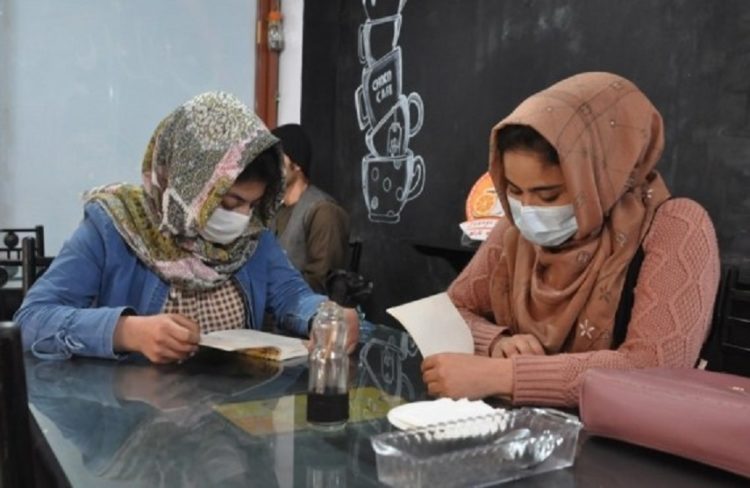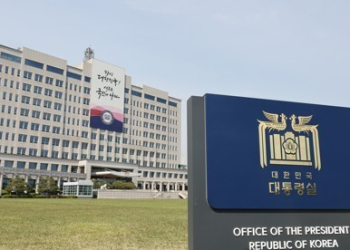New Delhi: Women and girls without a close male relative accompanying them were banned from entering coffee shops in Afghanistan’s Herat province, Raha Press reported.
Sheikh Azizi ur Rahman Al-Mohajer, the head of virtue and vice of the Taliban office in Herat, said from now on playing music and women and girls without a ‘mahram’ (relative) are forbidden, the report said.
He said criminals are also not allowed in coffee shops. According to him, most insecurities, kidnappings, robberies and destructive actions can be planned in such coffee shops.
“The coffee shop owners are warned if any instruction violations are reported, they will be faced with legal actions,” Al-Mohajer said, adding that coffee shops can be remain open till 9.30 p.m.
According to him, these coffee shops serve as a convenient place for most of the moral corruption something has misled the youths in Herat. He emphasised any decree on closing all coffee shops in Herat can be issued from Kabul.
This comes as recently after all mannequins were beheaded as they resembled idols, an instruction from the Taliban government that caused lot of public opposition.
Nearly five months after regaining power, the Taliban’s Ministry for the Promotion of Virtue and the Prevention of Vice has reclaimed its role as the enforcer of the group’s radical interpretation of Islamic law, RFE/RL reported.
In a spate of decrees issued in recent weeks, the Ministry has imposed restrictions on the behaviour, movement, and appearances of residents, particularly those of women and girls.
While the militants have claimed the decrees are only recommendations, Taliban religious police have enforced the new laws, sometimes violently, in many areas.
Many Afghans have voiced their anger at the Taliban’s religious policing, saying it is a tool for humiliating citizens and controlling every aspect of their lives.
For Afghans, the decrees are reminiscent of the draconian rules the Taliban imposed during its brutal rule from 1996 to 2001.
Obaidullah Baheer, a Kabul-based academic, said by forcing its own interpretation of Sharia law upon Afghans, the Taliban is “locking out the population from decision-making” and exposing its “tyrannical tendencies”, the report added.
Baheer said the Taliban views “any challenge to (its) policies as a challenge to the faith itself”.
Last month, the Taliban ordered shop owners in the western city of Herat to cut off the heads of mannequins, insisting they were un-Islamic.
The order angered local shopkeepers, who are already reeling from an economic crisis triggered by the Taliban takeover and the sudden halt in international assistance.
“These mannequins will be ruined if I am forced to behead them,” Mohammad Irshad, who owns three retail stores in Herat said. “It will negatively impact all our customers — men, women, and children. They will lose their appetite (for shopping),” the report quoted Irshad as saying.
Abdul Wadud Faizada, the head of Herat’s Chamber of Commerce, said the “heads of mannequins should be covered and not destroyed”. The Taliban has said that did not go far enough.
“Our traders will suffer financially,” Faizada said, noting that each mannequin typically costs between $70 and $100, as per the report.
Some shopkeepers appeared to be already complying with the orders by sawing off the heads of shop dummies.
In late December, the Taliban announced that women seeking to travel more than 72 km should be refused transport unless they were accompanied by a close male relative.
The advisory distributed by the Ministry for the Promotion of Virtue and Prevention of Vice also directed all vehicle drivers to refrain from playing music in their cars and not to pick up female passengers who did not wear an Islamic hijab covering their hair.
Since then, Taliban religious police have erected checkpoints across Kabul to inspect whether taxi drivers were complying with the orders.
Last week, the Taliban also shut down all public bath-houses for women in the northern city of Mazar-e Sharif. Such facilities are considered crucial because many Afghans do not have access to heating or electricity at home, the report said.
Tamana Siddiqi, a women’s rights activist in Mazar-e Sharif, criticized the move and said: “People are dealing with growing economic pains, which means that not everyone can afford a hot bath inside their house.”
Men face new regulations, too, as the Taliban’s religious police have instructed them to grow beards.
In a decree issued in late September, the Taliban banned the shaving of beards and trimming of hair in Uruzgan.
Violations can result in severe punishment, while barbers who were directly ordered to halt the practice are now struggling to make ends meet, RFE/RL reported.
In some areas of Afghanistan, the Taliban has made it mandatory for all men to attend congregational prayers at mosques.
In parts of Kabul and the northern province of Takhar, the Taliban has fined residents who did not show up for prayers. Repeat offenders have faced arrest or beatings, locals said.
The resident said the Taliban had ordered clerics at mosques in the capital to take a roll call and report those who failed to turn up.
In Takhar’s Rustaq district, Taliban fighters recently beat up two men who failed to attend prayers, locals said.
(IANS)





















